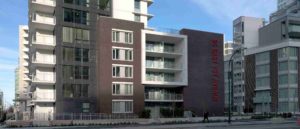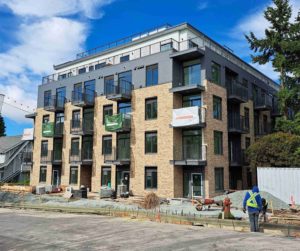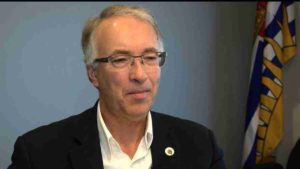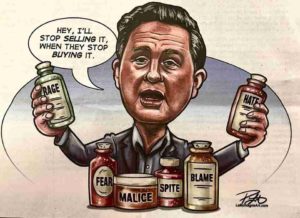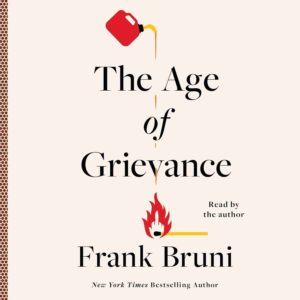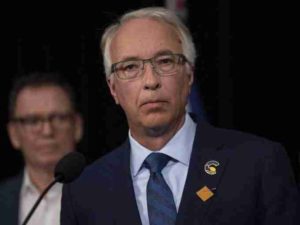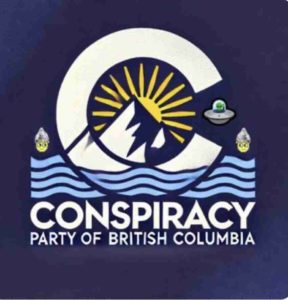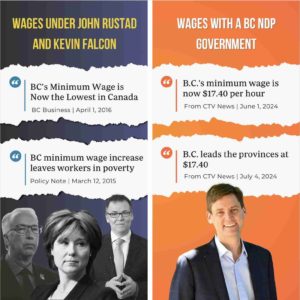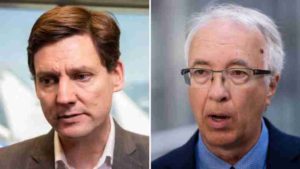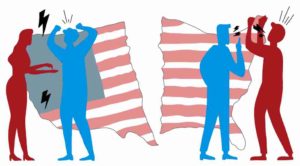In the aftermath of the dissolution of B.C. United, formerly known as the B.C. Liberal Party, several incumbent B.C. United members of British Columbia’s Legislative Assembly, and former candidates, have this past week decided to run as Independents in the upcoming 2024 British Columbia provincial election.
This rise of Independents running for election — or, re-election — follows B.C. United leader Kevin Falcon’s decision to endorse B.C. Conservative leader John Rustad and shutter the party, leaving centrist voters without a clear political home. The choices made by these MLAs and former candidates to run as Independents reveal a divergence of political philosophy from Kevin Falcon’s strategy, and reflect concerns about the lack of moderate representation in provincial politics.
The Independent Candidates: Incumbent Members of the Legislature
Several incumbent B.C. United MLAs have announced they will be running as Independents. Each brings their own rationale for breaking away from the party and running independently:
- Karin Kirkpatrick (West Vancouver-Capilano): A staunch advocate for centrist policies, Kirkpatrick has expressed discomfort with B.C. United’s decision to merge its support with the B.C. Conservatives. Her primary concerns centre on the erosion of moderate voices, particularly regarding social policy issues like LGBTQ rights and environmental policies, which she sees as being disregarded by the decidedly more right-wing Conservative Party of British Columbia. MLA Karin Kirkpatrick aims to continue representing her constituents with hard work, and a centrist approach.
Exciting news: I’m officially running for re-election as MLA for West Vancouver-Capilano as an independent! I’ve heard loud and clear that we need a voice that reflects our values and offers a centrist option in this important election.
As an independent MLA, I will fight for… pic.twitter.com/LYZFV50BAf
— Karin Kirkpatrick ?? (@KirkpatrickWVC) September 16, 2024
- Coralee Oakes (Cariboo North): Ms. Oakes — a former B.C. Liberal Minister of Community, Sport and Cultural Development — with a deep history of public service in her rural riding, has also similarly distanced herself from the merger. She has criticized the B.C. Conservatives alt-right stance, as she emphasizes her commitment to pragmatic, community-based governance that is neither aligned with the socially democratic B.C. NDP nor the far-too-right-wing for her, B.C. Conservatives. Oakes’s focus remains on rural issues such as forestry and infrastructure.
- Mike Bernier (Peace River South): Mr. Bernier — a former B.C. Liberal Minister of Education — has long advocated for resource development and economic growth, but believes that the endorsement of the B.C. Conservative Party by Kevin Falcon represents a step too far toward the political right. Running as an Independent allows Mr. Benier to maintain a balance between economic conservatism and moderate social policies that he believes reflect the values of his constituents.
- Dan Davies (Peace River North): Mr. Davies has taken a similar stance, underscoring the importance of responsible fiscal policy without compromising on social issues like education and healthcare. His departure from B.C. United reflects his unease with the B.C. Conservatives extreme positions, particularly regarding climate change and Indigenous relations, which are key issues in his resource-rich riding.
- Tom Shypitka (Kootenay-Rockies): Mr. Shypitka, known for his work in mining and natural resource sectors, has voiced concerns about how Kevin Falcon’s endorsement of the John Rustad-led B.C. Conservative Party could alienate voters who are interested in economic development, but who also value progressive stances on issues like environmental sustainability. By running as an Independent, Mr. Shypitka hopes to represent a balance that the B.C. Conservative Party does not embrace.
Former B.C. United Candidates Turning Independent in 2024
Several former B.C. United candidates are also taking the Independent route:
- Jackie Lee (Richmond-Steveston) and Wendy Yuan (Richmond Centre). A long-time advocate for immigrant communities and small businesses, Jackie Lee has voiced frustration over the lack of moderate representation, most particularly Conservative’s socially intolerant stances. Meanwhile, Wendy Yuan is a three decade resident in the Richmond Centre riding, who has expressed concern about escalating crime, open drug use, and a relentless surge in the cost of living.
- Karen Long (Langley-Abbotsford), Ashley Ramsay (Kelowna-Mission), Dr. Michael Humer (Kelowna Centre) and Tracy St. Claire (Penticton-Summerland). All four former — well known in their communities — B.C. United candidates, now running as Independents, have expressed similar concerns regarding social policies and a desire to represent their ridings with a more balanced platform, reflecting frustration with the direction taken by John Rustad’s B.C. Conservative Party.
Since BCU’s collapse, many in Langley-Abbotsford have urged me to run as an independent. Voters across BC feel that BC NDP is too far left, BC Conservatives too far right, & politics are too polarized. Maybe it’s time to do politics differently. #bcpoli #purpleundercurrent pic.twitter.com/HU6PqPsbJu
— Karen Long (@votekarenlong) September 16, 2024
- Kevin Acton (Vernon-Lumby) and Greg McCune (Salmon Arm-Shuwap): These candidates, who have championed rural issues like farming and resource management, have expressed concerns about the polarizing impact of the B.C. Conservative Party on voters who may not agree with their stance on climate change or social issues, but still want robust support for local economies.
- Meiling Chia (Burnaby South-Metrotown): Ms. Chia has positioned herself as a voice for urban issues like housing affordability and transit. She believes that neither the B.C. Conservatives nor the B.C. NDP offers real solutions for these problems, particularly in fast-growing urban areas where centrist solutions are needed
The Impact of Independent Candidates on B.C.’s Provincial Election
The decision by these former B.C. United MLAs and candidates to run as Independents will have significant implications for both the B.C. Conservative Party and the B.C. New Democratic Party (NDP) in the upcoming election.
- Impact on B.C. Conservative Party: With B.C. United’s former base splintering, the B.C. Conservatives under John Rustad are poised to gain support, especially in rural ridings where conservative values are popular. However, the presence of high-profile Independents like Bernier, Oakes, and Davies could split the vote in these regions, potentially reducing the chances of a B.C. Conservative victory. These Independents may appeal to voters who are fiscally conservative but uncomfortable with the B.C. Conservatives’ positions on social issues like LGBTQ rights and climate change.
- Impact on B.C. NDP: The splintering of the centre-right vote could benefit the B.C. NDP, especially in urban ridings like Richmond-Steveston, Burnaby South-Metrotown, and Kelowna-Mission. Without a strong centrist party, the B.C. NDP may face less competition from a unified right, allowing them to consolidate support in key battlegrounds. However, if Independent candidates gain enough traction, they could draw away moderate voters who would otherwise have supported the NDP as a strategic choice.
Kevin Falcon’s decision to endorse John Rustad and close B.C. United has left a significant void in British Columbia’s political landscape. VanRamblings has been told by folks in the know that come the 2028 British Columbia provincial election voters will see the revival of a vibrant new, well-funded B.C. Liberal party, offering a fiscally responsible, and socially progressive approach to B.C. politics.
In 2024, by running as Independents, the former B.C. United MLAs and candidates we write about today are aiming to fill that gap, providing voters with a centrist option they believe no longer exists within B.C.’s formal party system.
Their presence in the election is likely to reshape the dynamics in key ridings, creating new challenges for both the B.C. Conservatives and the B.C. NDP.
Whether this strategy will succeed remains to be seen, but it underscores the shifting political terrain in British Columbia as voters navigate between the increasingly polarized political options on offer in the British Columbia provincial election.

